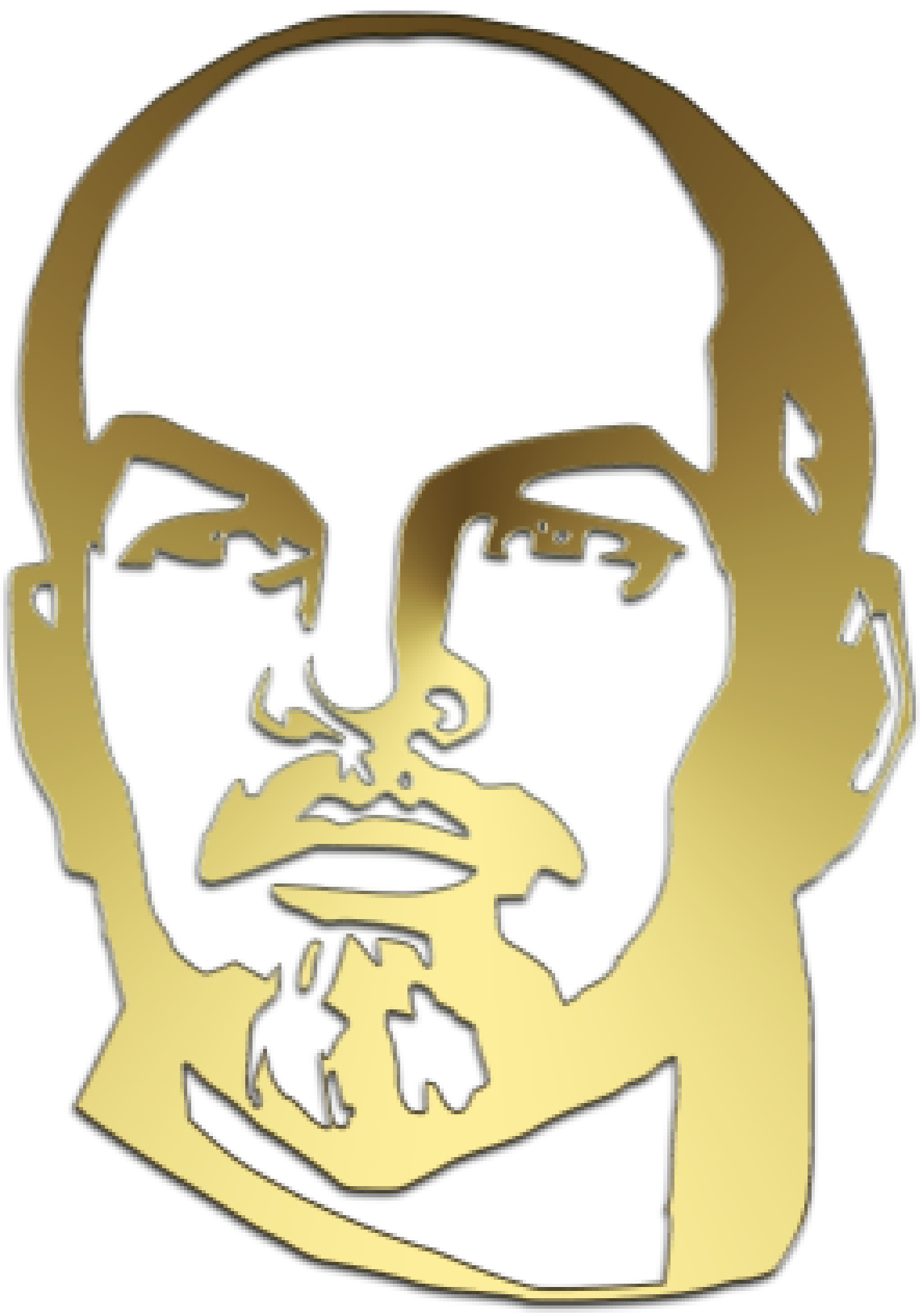Vladimir Ilyich Lenin Wikipedia tiếng Việt
Table of Content
After his exile, he moved to Western Europe, where he became a prominent theorist in the Marxist Russian Social Democratic Labour Party . In 1903, he took a key role in the RSDLP ideological split, leading the Bolshevik faction against Julius Martov's Mensheviks. Following Russia's failed Revolution of 1905, he campaigned for the First World War to be transformed into a Europe-wide proletarian revolution, which, as a Marxist, he believed would cause the overthrow of capitalism and its replacement with socialism.

Several non-Russian nations had secured independence from the Russian Empire after 1917, but three were re-united into the new Soviet Union in 1922. His health failing, Lenin died in Gorki, with Joseph Stalin succeeding him as the pre-eminent figure in the Soviet government. In the case of Russia, it also included soldiers who had wearied from the staggering losses provoked by Russia’s involvement in the first World War. Lenin also put forth the need for a "revolutionary vanguard," asserting that the working class could never achieve proletarian consciousness by itself.
Vladimir Lenin and the Governance of a New Russia
Lenin’s body was moved several times following his death, from a mausoleum in Moscow’s Red Square to the distant city of Tyumen, Russia, for safekeeping during World War II. His embalmed body remains on display in Lenin’s tomb in Red Square. His absence paved the way for Joseph Stalin, the Communist Party’s new General Secretary, to begin consolidating power. Lenin resented Stalin’s growing political power and saw his ascendency as a threat to the U.S.S.R. Peasants, workers and soldiers demanded immediate change in what became known as the October Revolution. Vladimir Lenin was born Vladimir Ilich Ulyanov in 1870 into a middle-class family in Ulyanovsk, Russia. The son of Ilya Ulyanov and Maria Alexandrovna Ulyanova, he was the third of six siblings in an educated family and would go on to become first in his class in high school.

Under his administration, Russia, and later the Soviet Union, became a one-party socialist state governed by the Communist Party. Ideologically a Marxist, his developments to the ideology are called Leninism. Alienation of the population behind the lines can explain, according to him, both red and white defeats during the civil war. Supporters of a wide variety of political movements took up arms to support or overthrow the Soviet government. Although many different factions were involved in the civil war, the two main forces were the Red Army and the pro-Imperialist White Army.
Vladimir Lenin & the Aftermath of the Revolution
After the negotiations collapsed, the Germans renewed their advance, resulting in the loss of much of Russia's western territory. As a result of this turn of events, Lenin's position consequently gained the support of the majority in the Bolshevik leadership. On March 3, 1918, Lenin removed Russia from World War I by agreeing to the Treaty of Brest-Litovsk, under which Russia lost significant territories in Europe. Lenin lobbied for socializing the health care system, the emancipation of women, and teaching the illiterate Russian people to read and write. But first and foremost, the new Bolshevik government needed to take Russia out of the World War.

Despite the adverse reaction from many Bolsheviks, who regarded the NEP as a betrayal of communist principles, the NEP succeeded in restoring the Russian economy. In January 1918 and March 1918, Lenin was the victim of assassination attempts, both of which he survived relatively unscathed. During the 1920s and the 1930s, Stalin fought and defeated the political influence of Trotsky and the Trotskyists in Russia using slander, antisemitism, censorship, expulsions, exile , and imprisonment. The anti-Trotsky campaign culminated in the executions of the Moscow Trials (1936–1938), which were part of the Great Purge of Old Bolsheviks who had led the Revolution. Karl Marx was a 19th-century philosopher, author, and economist famous for his ideas about capitalism and communism.
Within the Soviet Union
He wrote a paper on peasant economics; it was rejected by the liberal journal Russian Thought. Lenin was one of the leading political figures and revolutionary thinkers of the 20th century, who masterminded the Bolshevik take-over of power in Russia in 1917, and was the architect and first head of the USSR. Lenin’s radical political views and prolific revolutionary activity made him a wanted man in Russia. He spent many years out of the country, living in exile in cities like Munich, Prague, Paris and Manchester. Lenin was in London and caught off guard by the events of the 1905 Revolution.

In response, Lenin urged an attack on Warsaw, believing that the proletariat would rise up and overthrow the Polish government. Nonetheless, the Bordigism of the International Communist Party abides Bordiga's strict Leninism. Ideologically aligned with the Dutch-German left, among the ideologists of contemporary communisation, the theorist Gilles Dauvé criticised Leninism as a "by-product of Kautskyism". In The Soviet Union Versus Socialism , Noam Chomsky said that Stalinism was the logical development of Leninism and not an ideological deviation from Lenin's policies, which resulted in collectivisation enforced with a police state. In light of the tenets of socialism, Leninism was a right-wing deviation from Marxism. Marxism is a set of social, political, and economic theories created and espoused by Karl Marx that became a prominent school of socialist thought.
Highlighting Lenin's "extraordinary capacity for disciplined work" and "devotion to the revolutionary cause", Pipes noted that he exhibited much charisma. Similarly, Volkogonov believed that "by the very force of his personality, had an influence over people". Conversely, Lenin's friend Gorky commented that in his physical appearance as a "baldheaded, stocky, sturdy person", the communist revolutionary was "too ordinary" and did not give "the impression of being a leader". Lenin was a devout Marxist, and believed that his interpretation of Marxism, first termed "Leninism" by Martov in 1904, was the sole authentic and orthodox one. On 23 January, mourners from the Communist Party, trade unions, and Soviets visited his Gorki home to inspect the body, which was carried aloft in a red coffin by leading Bolsheviks.
In the constitutional election, the Bolsheviks gained approximately a quarter of the vote, being defeated by the agrarian-focused Socialist-Revolutionaries. Nevertheless, the newly elected Russian Constituent Assembly convened in Petrograd in January 1918. Sovnarkom argued that it was counter-revolutionary because it sought to remove power from the soviets, but the Socialist-Revolutionaries and Mensheviks denied this.
Lenin also soaked up the writing of Karl Marx, the German philosopher whose famous book Das Kapital would have a huge impact on Lenin’s thinking. The year of his brother’s execution, Lenin enrolled at Kazan University to study law. His time there was cut short, however, when, during his first term, he was expelled for taking part in a student demonstration. Lenin became the first head of the U.S.S.R., but by that time, his health was declining. Between 1922 and his death in 1924, Lenin suffered a series of strokes which compromised his ability to speak, let alone govern. In 1922, a treaty between Russia, Ukraine, Belarus and the Transcaucasus formed the Union of Soviet Republics (U.S.S.R.).

Born to an upper-middle-class family in Simbirsk, Lenin embraced revolutionary socialist politics following his brother's 1887 execution. Expelled from Kazan Imperial University for participating in protests against the Russian Empire's Tsarist government, he devoted the following years to a law degree. In 1897, he was arrested for sedition and exiled to Shushenskoye in Siberia for three years, where he married Nadezhda Krupskaya.
Comments
Post a Comment